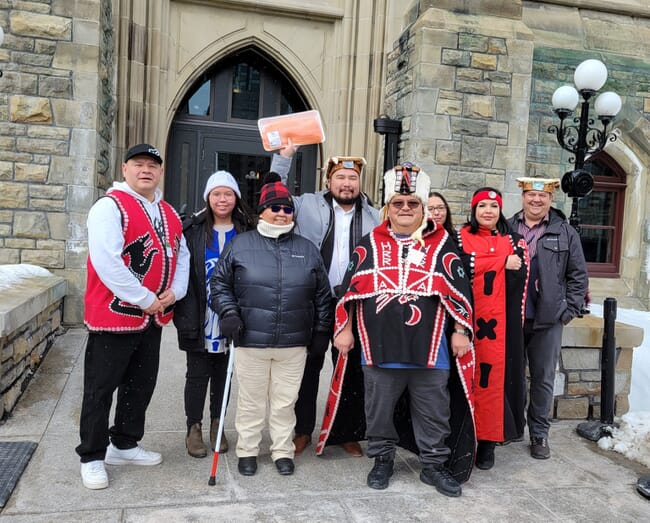
© FNFFS
The Coalition of First Nations for Finfish Stewardship (the Coalition), the BC Salmon Farmers Association (BCSFA), and the BC Centre for Aquatic Health Sciences (BC CAHS) have announced the release of a comprehensive collaborative publication detailing the BC salmon farming sector with contributions and data from First Nations, researchers, governmental organisations, and sector experts.
Commissioned by the Coalition and other Rightsholder First Nations that host salmon farming in their territories, the 500-page paper - titled Modern Salmon Farming In British Columbia: A Review - was compiled with the aim of providing transparency and answers to any questions First Nations communities may have regarding salmon farming and its impacts.
The release of the report is timely for First Nations, the sector, and suppliers as federal fisheries minister Diane Lebouthillier is expected to announce the salmon farming licencing decision in BC later this spring as she meets her mandate to finalise a “responsible, realistic and achievable” Transition Plan for the sector by 2025.
“As First Nations with salmon farming in their territories move forward on the sector’s transition with the government, some of our communities have noticed knowledge or information gaps regarding modern salmon farming,” said Coalition spokesperson and Tlowitsis member Dallas Smith, in a press release.
“This collection of Western science and data is a good base for us to apply our rich traditional knowledge to so that our leadership is armed with the holistic information we need to steward our waters and wild salmon, while protecting the social and economic health of our communities,” they added.
The review, copies of which have been sent to First Nations across BC, opening a Nation-to-Nation conversation, takes a holistic approach, detailing all aspects of salmon farming, from sea lice, benthic impacts, and incidental catch to mammal interactions, First Nations Stewardship, and the current state of wild Pacific Salmon.
“While the development of this review has been a rigorous effort, it is important to show that we truly are committed to trust and transparency with, first and foremost, the First Nations in whose territories we operate, as well as the public and government decision-makers,” said Brian Kingzett, executive director of the BCSFA.
“We are furthering our commitment to transparency of our operations as we continue to innovate to reduce our environmental impact. This scientific review document launched today reinforces the sector's position as a responsible contributor to the economy, the environment, and the well-being of coastal communities,” he added.
The review also elucidates the importance of First Nations inclusion in the operations and decision making within the salmon farming sector, particularly through the application of Indigenous Traditional Ecological Knowledge (TEK) and schemes such as the Guardian Watchmen stewardship programme.
“BC coastal First Nations have been the stewards of our waters since time immemorial. Today, our stewardship includes both conservation and exploration of marine-based economic opportunities for our communities, like salmon farming,” commented Smith.
“At a time when Canadians are worried about food security, food affordability, and climate change, our communities have both the traditional knowledge and now a textbook of scientific evidence to choose how to best include salmon farming in our ocean and economic planning. This way, coastal First Nations can participate in Canada’s Blue Economy and help put food on tables for families across the country,” they concluded.




